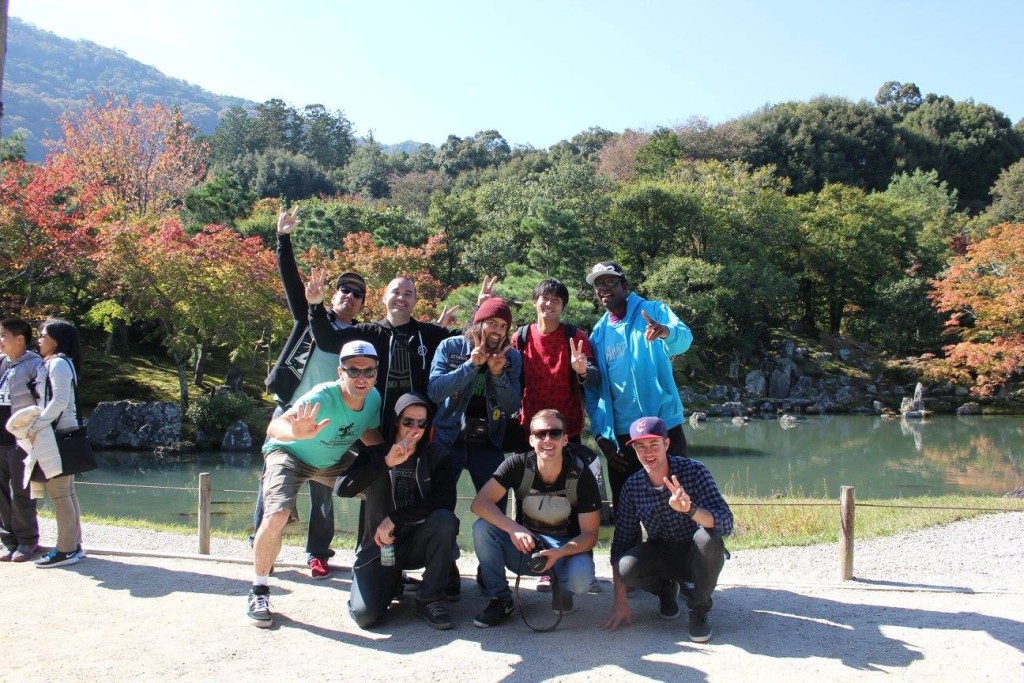
Being a foreigner, or gaijin, in Japan can be pretty daunting, especially if it’s your first time there. It isn’t always a walk in the park if you don’t speak the language, but there are some tried and tested rules that you can follow in order to make your trip run as smoothy as possible.
Being able to read Chinese characters (kanji) or the Japanese alphabet (kana) on signs could be a nightmare if you’re outside of Tokyo. Thankfully, having a language barrier need not mean that you are being rude or ignorant. After all, body language and inferred politeness can go a long way towards earning respect.
1. Wear a mask (if you need to)
It might feel uncomfortable or itchy at first to put on a mask, but it’s extremely common in Japan. If you travel during March or April, when the pollen count is considerably high (many Japanese suffer from hayfever) you will see countless masked men and women everywhere. Cheap to buy and readily available from a nearby drugstore, masks are also a way of showing consideration for others when you have caught a bug. Watch out if you wear glasses though, as the steam generated through breathing can fog up your lenses and impair your viewing.
2. Feel free to slurp your food
Although in many cultures, slurping food is considered rude, it’s not the case at all in Japan. In fact, it’s very normal to do so during a meal. Since you are likely to be using chopsticks to eat out at a Japanese-style restaurant or someone’s home, it is not recommended that you try to cut food into smaller pieces. Instead, just gather a small portion using your chopsticks and slurp up that delicious cuisine. Of course, don’t go overboard on the slurping noises – but some natural bodily noises are perfectly acceptable to those around you. If you go to a busy food joint at lunchtime during the Japanese working week, you’ll often see men and women hurrying to finish their meals and wondering whether they have indigestion. But you can take your time.
3. Never tip
In the US and many other countries, it is not necessarily obligatory to leave a tip for your waiter or waitress at a restaurant, but people do like to acknowledge good quality service. In Japan, this is a big no-no. It might seem counterproductive but individual staff members do not want to draw attention to themselves. The level of customer service in Japan is of a very high standard indeed and you will undoubtedly be surprised by how much people will go out of their way to assist you. However, due to a great emphasis on working together in teams in the Japanese culture, it is not wise to embarrass yourself by supplying a tip. If you really want to leave a tip, it should be concealed in an envelope and not given directly to one person.
4. Always carry tissues
This is a truly golden tip for travelling in Japan. When you’re out and about exploring, at some point you may find yourself needing to find the facilities. But it’s not always as straight-forward as just walking into a portaloo and coming back out again. No, you will usually need to supply your own toilet paper. Since you probably don’t want to be walking around with a huge roll of toilet paper under your arm, it is most convenient to buy small packs of Kleenex or other pocket-sized tissues in case of an emergency. In Tokyo, during the busier peak times you will often see people handing out free tissues with some advertising inside them. Seize those precious opportunities to save yourself a little cash and accept them gratefully.
5. (Sometimes) ignorance is bliss
If you find some unpleasant (heaven forbid) stranger trying to talk to you, it is in your best interest not to engage in conversation of any kind with that person. This is another concept that you may find strange, but acknowledgement in any form means that you haven’t completely ruled out what they’re saying to you. Far from being rude, turning a blind eye to someone unsavoury is the best way to get them off your back. Again, during those busy rush hours near the bustling stations of Tokyo, it is common to see female friends being plagued by persistent model / talent scouts. The less those women engage with them, the better their chances are of being left to their own devices.
Most importantly though, you should just allow yourself to relax and enjoy your stay in Japan. After all, Japanese people are inherently curious and will certainly love to hear about the unique aspects and traditions of your home country. If you’re staying at someone’s home, it is a great idea to bring something representative of your country or hometown with you. They will love it. Guarantee, brah!
